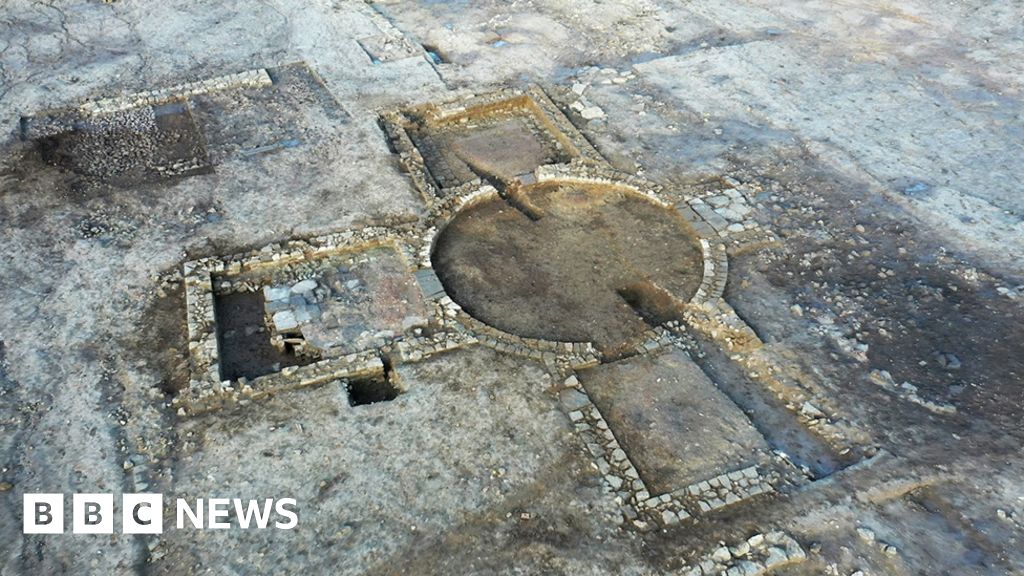“Yes, we do.” replied Friþugairns, in a low, soft voice. “A young woman from our village disappeared two days ago. Her name in your Latin is Barbaria. She is dauhtar meins, mea filia.”
The Praeses did a fair job of hiding his shock at this information. The Goth slut, condemned to death, was the daughter of a Goth headman! His mind reeled as he considered the complexities and dangers of the situation. Despite the coolness of the room, he felt sweat break out on his neck
“Your fine officer here, Sextus, told me that such a girl was a slave here and is charged with a capital crime. I have come to confirm, if possible, that it isn't my daughter, or indeed any of my barns (children) who is facing death”
If the Governor was anything, he was an accomplished politician and diplomat. His racing mind told him to take things slowly and carefully here. And to minimize definitive statements.
“This is most concerning,” he said in a slow, sincere voice, “we Romans pride ourselves on the justice of our legum (laws). I believe there may be a slavegirl accused. I cannot recall whether she might have been Gothica. Of course, you can't expect me to remember every minor criminal.” The withering gaze of the taller chief made Gaius uncomfortable with his transparent prevarication. “Oh, yes, now it's coming back to me. She attempted to kill her master and committed treason against the Rem Publicam (the Republic - even at this late date, Rome was still spoken of as a republic). Tesserarie. What are that girl's tribe and name?"
Sextus, of course, had been the one who'd told the Goth chieftain about the girl. And he was aware that the Praeses knew the girl’s name and tribe. But with a straight face, he replied, “Gothica, Barbaria.”
Despite his stoic self-control, Friþugairns gave a slight groan at the confirmation of his fears. “That must be her,” he said, his voice almost breaking. “When will she be tried?”
"Ah, yes," said Gaius, looking back at the Goth. "It does appear that she might be the one you are seeking. As regards her trial, I regret to inform you that this girl had already been given a trial of due process and found guilty on both charges.” The Governor saw no way around completing the news. He stepped slightly back to stand protected between his bodyguards and said, "She is due to be placed on the cross here at noon."
Containing his anger and grief, Friþugairns looked closely at the Governor. He had always been adept at reading other people and their character. That, more than military genius, had been the key to his success as a battle leader and now as a peacemaker in his tribe.
He knew, of course, that this man was a Roman and by that could not be trusted. But he also seemed unusually modest and accommodative for a high official. He had, since the tribe moved here, evidenced a sincerity of purpose to deal fairly with the Goths, and that purpose seemed present now. But the Praeses was also a politician and well able to speak from both sides of his mouth. And his eyes had lit up at the sight of the gulþ (gold). The headman judged the best approach to be one of respect without hostile confrontation.
“My heart is most heavy on hearing this gaurs (sad) news," he said, revealing only sorrow and no anger. "Is it possible for the Gutisks Þiuda to beg for pardon for one of their own from your excellency? Surely, you have the authority to waive this terrible sentence?" He gestured to his men to slide the treasure chest a bit forward.
“Get her up,” commanded the Optio, and the men pulled the patibulum up, forcing the Goth girl to stand on unsteady legs. “Give her a lumbare (loincloth). We need to respect her modesty on the way to her execution," he said with a laugh. "Though I suspect that this German whore is used to walking the streets naked, begging for business.” The soldiers laughed along with their officer as they tied a tiny cloth around Barb’s hips.







